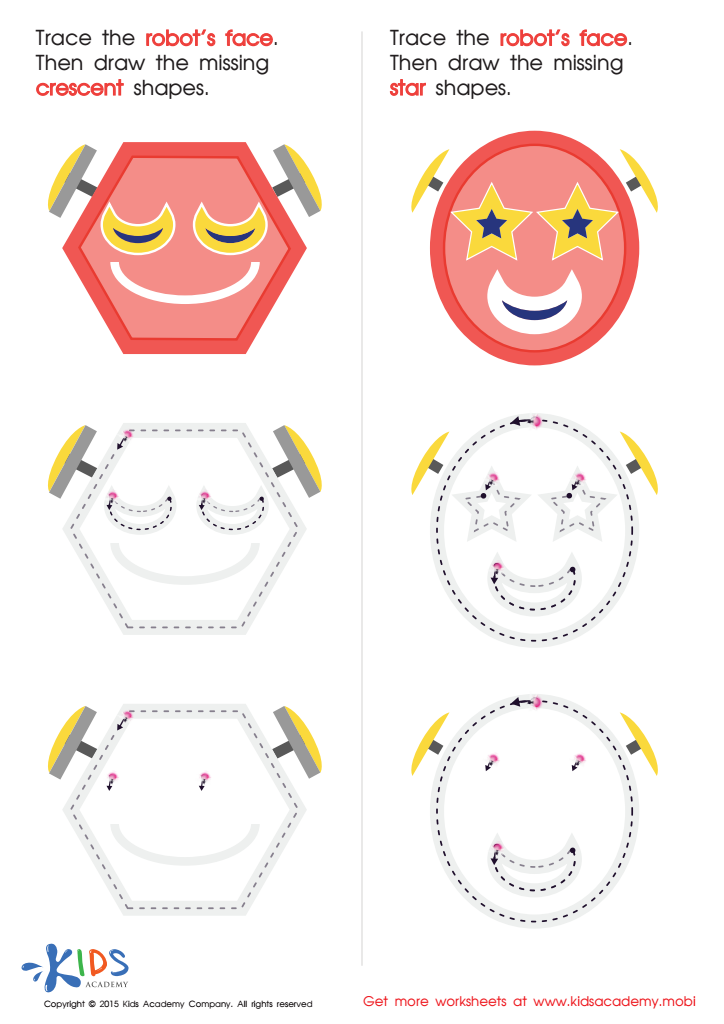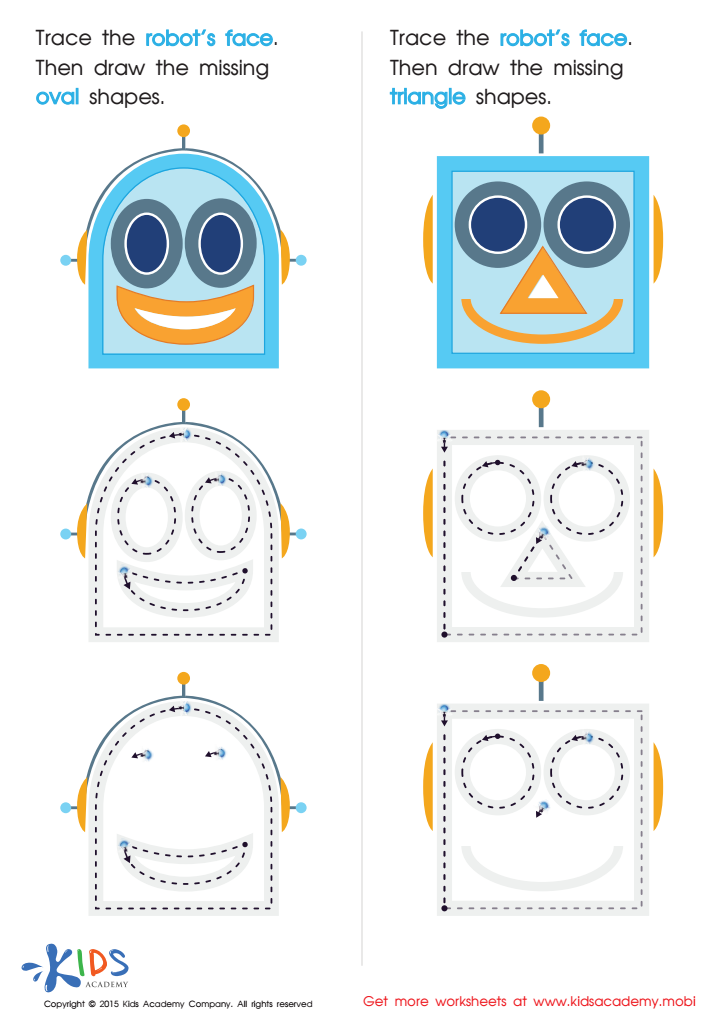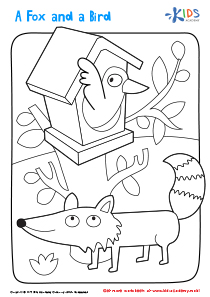Easy Tracing Shapes worksheets activities for Ages 4-5
2 filtered results
-
From - To


Composing a Robot's Face of Crescents And Stars Worksheet


Drawing Ovals And Triangles with Fun Printable
Easy Tracing Shapes worksheets activities are an essential part of early childhood education, providing young learners with a foundation for developing their fine motor skills. These activities are designed to be engaging and fun, encouraging children to practice drawing and recognizing different shapes, which is crucial for their cognitive development. Let’s explore why Easy Tracing Shapes worksheets activities are so useful in the realm of early education.
First and foremost, these activities improve hand-eye coordination. As children trace over different shapes, they learn to control their hand movements in relation to what they see. This coordination is fundamental in preparing them for more complex tasks such as writing, tying shoelaces, or using utensils properly. Easy Tracing Shapes worksheets offer a structured way to practice this skill, with simple and clear lines that children can follow.
Moreover, Easy Tracing Shapes worksheets activities enhance fine motor skills. The act of holding a pencil and tracing shapes helps in strengthening the small muscles in a child's hands and fingers. These skills are essential not only for writing but also for other daily activities like opening lunch boxes, buttoning clothes, or using scissors. Through repetitive practice, children develop precision and dexterity.
Cognitive development is another significant advantage. By engaging with Easy Tracing Shapes worksheets, children learn to recognize and name various shapes, an early math skill that serves as the building block for more advanced concepts like geometry. This recognition also aids in spatial awareness, understanding patterns, and problem-solving skills.
In addition, these worksheets promote creativity and confidence. Children feel a sense of accomplishment when they successfully trace a shape, boosting their confidence and encouraging them to try more complex shapes or activities. This positive reinforcement nurtures their creativity, as they start to explore drawing and designing independently.
In conclusion, Easy Tracing Shapes worksheets activities are invaluable tools in early childhood education. They not only prepare children for academic learning by developing fine motor skills, hand-eye coordination, and cognitive abilities but also foster creativity and self-confidence. These simple yet effective activities lay a strong foundation for children’s future learning and development.
 Assign to the classroom
Assign to the classroom












